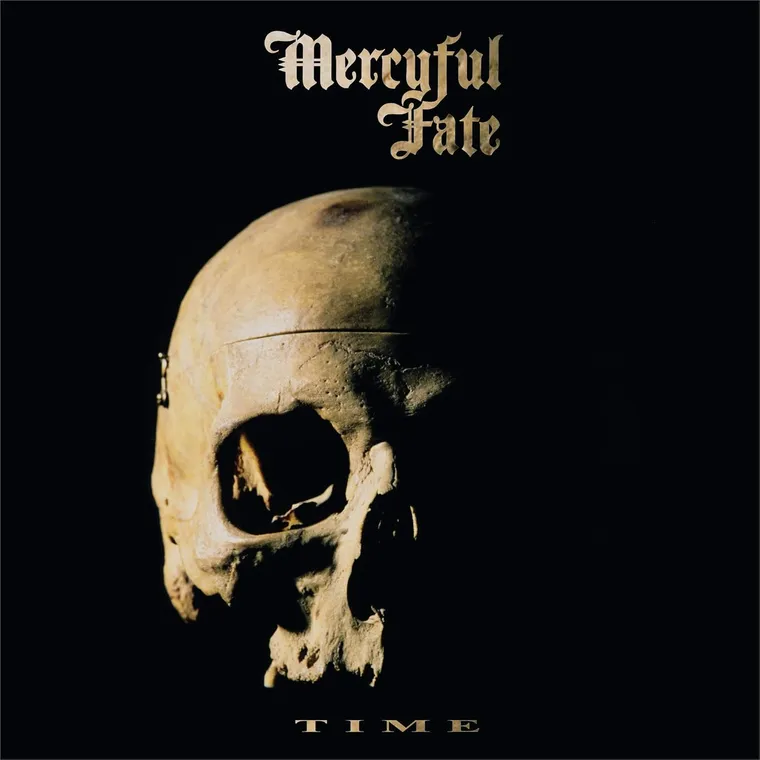Released on October 25, 1994, Mercyful Fate’s Time didn’t reinvent the Danish legends — it reaffirmed them. This wasn’t a reunion album grasping at the glories of Melissa or Don’t Break the Oath; it was something deeper.
Time felt like the sound of a band stepping back into the shadows they created, not to relive them, but to measure how far they had come since.
By the mid-’90s, metal had fractured into dozens of new directions — death, black, groove — all owing something to Mercyful Fate’s pioneering fusion of melody and menace. Yet Time arrived with a quiet confidence, unbothered by the chaos around it. It didn’t scream to be relevant. It simply was.
This wasn’t Mercyful Fate the provocateurs. It was Mercyful Fate the storytellers — older, wiser, and more patient with the darkness that made them legends.
From Ritual to Reflection: A Darker Kind of Return
If In the Shadows (1993) was the band’s bold resurrection, Time was the moment after the storm — introspective, measured, and aware of its own weight. There’s less urgency here, more atmosphere. The record breathes. Where their early albums danced with the Devil in youthful defiance, Time contemplates mortality, myth, and the passage of life itself.
Lyrically, King Diamond trades pure blasphemy for something far more existential. “The Mad Arab” channels Lovecraftian obsession, “Angel of Light” wrestles with faith and illusion, and “Nightmare Be Thy Name” opens the album like a ritual half-remembered — equal parts fury and nostalgia. There’s still evil in the air, but it’s an older, quieter kind. Less fire and brimstone — more candlelight and dust.
King’s voice, aged but undiminished, feels like an instrument in constant metamorphosis. His falsetto no longer startles for shock value; it shivers with intent. There’s control, there’s drama, but above all, there’s emotion — the sound of a man who’s learned that fear can whisper as powerfully as it can scream.
Riffs and Reflection: What Time Sounds Like
The heart of Time lies in its restraint. Hank Shermann and Michael Denner’s guitars don’t compete; they converse. Their twin leads weave ancient-sounding melodies around one another, trading complexity for cohesion. There’s less of the manic sprinting that defined the band’s early work, replaced by mid-tempo precision and eerie poise.
Songs like “Mirror” and “Lady in Black” feel carved from obsidian — sharp, reflective, and cold to the touch. “Witches’ Dance” slips between haunting acoustics and sudden bursts of menace, while “Banshee” channels pure ghost story energy, its galloping rhythm pushing the album toward something primal.
Sharlee D’Angelo’s bass hums beneath it all like a séance drone, grounding the spectral theatrics in something tangible. And Snowy Shaw’s drums — crisp, deliberate, and cavernous — give the entire record a pulse that’s both ritualistic and human.
This is heavy metal made with an artisan’s patience, not a showman’s haste.
Vulnerability Behind the Volume
For all its dark imagery, Time carries a surprising sense of melancholy. Beneath the riffs and rituals lies a quiet sadness — the sound of a band aware of their own history, and the ghosts that come with it. You can feel that ache in “The Afterlife,” where the melody lingers long after the final note fades. Even in its most aggressive moments, Time never feels angry. It feels haunted.
That emotional undercurrent gives the album its depth. King’s lyrics no longer sound like sermons from the altar of shock; they feel like meditations from a man who has lived long enough to know what darkness costs. It’s theatrical, yes, but it’s also deeply human.
This was never just about devils and witches — it was about the people who conjure them, and why.
The Production: Cold, Clean, and Cathedral-Sized
Produced by Flemming Rasmussen — the same hand behind Metallica’s Ride the Lightning — Time is one of Mercyful Fate’s most sonically disciplined albums. Rasmussen captures every nuance: the shimmer of twin guitars, the echo of a falsetto against stone walls, the faint reverb that makes every note feel like it’s traveling through centuries.
The mix is clean but not sterile. There’s air between the instruments, a sense of space that turns every track into its own haunted chamber. The acoustic passages sound intimate; the heavier moments, colossal.
This is the sound of old magic performed with modern precision.
It’s not raw like Melissa, nor glossy like later works — it’s cinematic, textured, and strangely timeless. You don’t just hear this record; you step inside it.
The Legacy: Shadows That Still Speak
Time may not be the first album fans reach for when revisiting Mercyful Fate, but it’s one of the most revealing. It’s the calm between two storms — a moment of balance between youthful fury and mature restraint. It’s where the band proved that the darkness they once wielded in rebellion could also be used for reflection.
Its influence is quieter than the classics, but enduring. Modern occult and doom metal still borrow its sense of patience, its willingness to let the atmosphere do the heavy lifting. It’s a reminder that heaviness isn’t measured in distortion — it’s measured in feeling.
For Mercyful Fate, Time marked not just a continuation, but an evolution. The flames still burned, but now they flickered with wisdom.
Final Verdict: 8 / 10
Time is Mercyful Fate grown older but no less potent — an album that trades youthful hysteria for haunted grace. It’s dark, patient, and alive with quiet power.
It doesn’t try to outdo the past; it reflects on it.
And in doing so, it captures something rare in metal — the sound of maturity without surrender.
With Time, Mercyful Fate didn’t chase their legacy. They stood still long enough for it to find them again — and the echoes still haven’t faded

